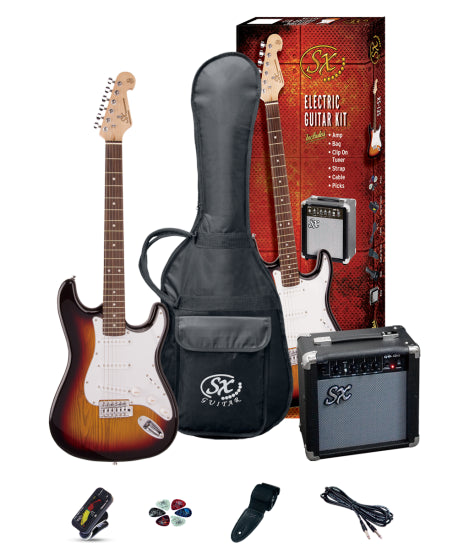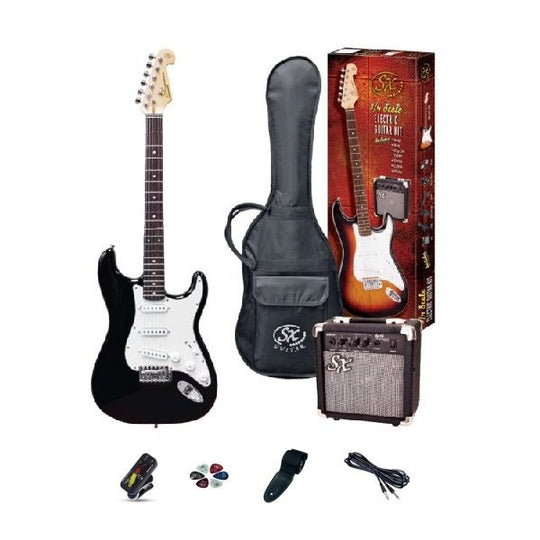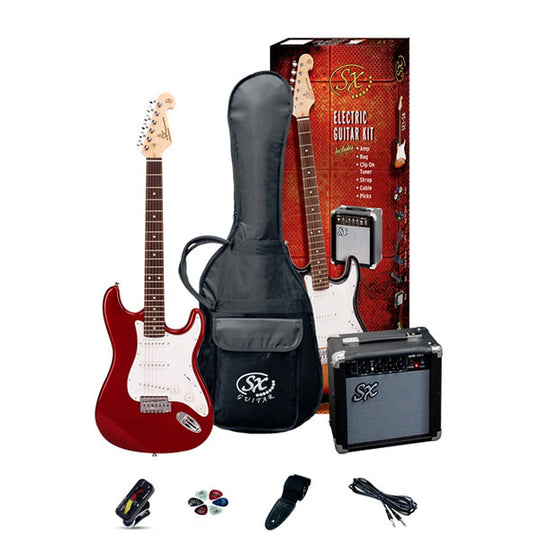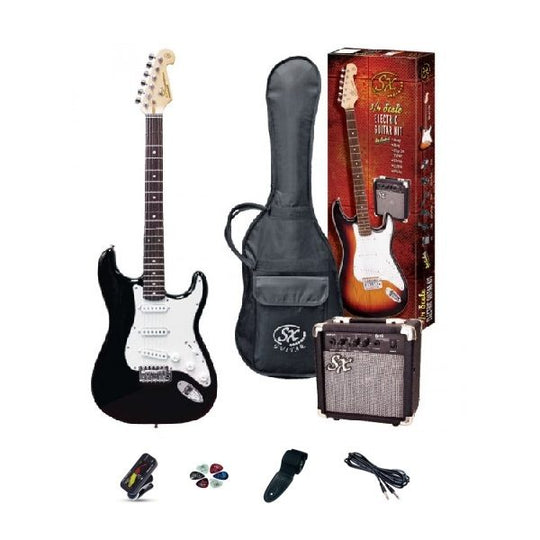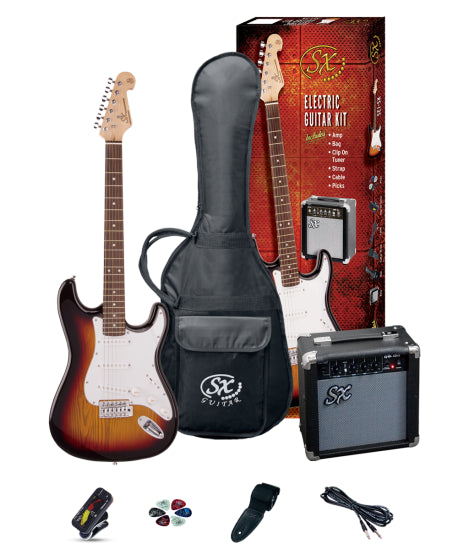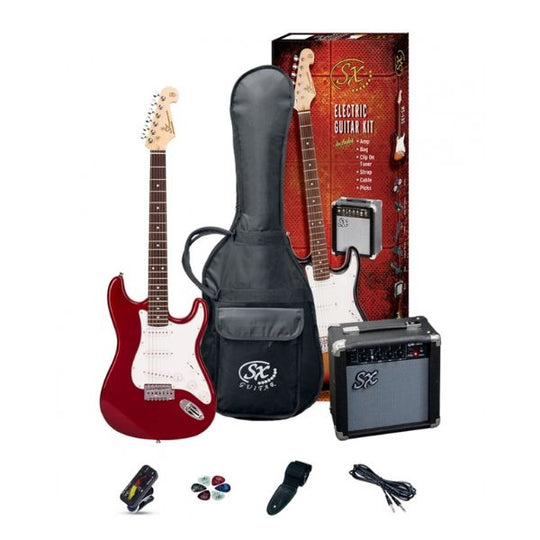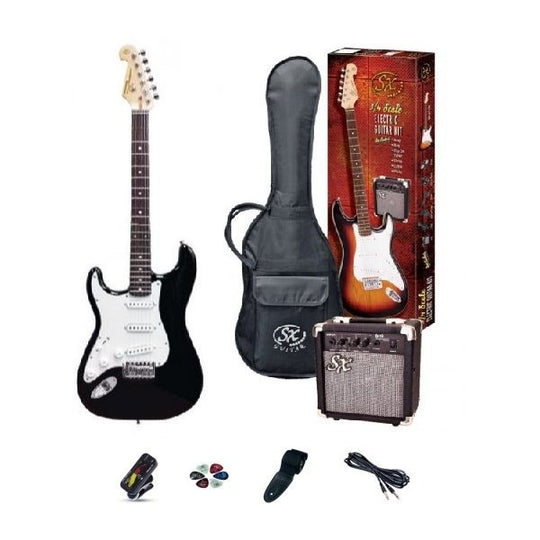Electric
- ←
- →
FAQs
What's the difference between single-coil and humbucker pickups?
Single-coil pickups offer a bright, clear tone with a characteristic "twang," ideal for genres like country, blues, and funk. Single coils are also prone to 60 cycle hum and can be difficult to manage for new beginners due to their unyielding brightness.
Humbuckers are known for their thicker, warmer sound with less noise, making them well-suited for rock, metal, and jazz. Humbuckers are so named because they are much less prone to the 60 cycle hum of single coil pickups (ie they BUCK the [60 cycle] HUM!)
Which electric guitar is best for beginners?
For beginners, the choices are seemingly limitless. Genre & sound play a large part of what electric will suit each player, along with personal style preferences.
- Squier offer Fender looks & sounds at a fraction of the cost of their American cousins. Fender is currently experiencing a huge boom of popularity with their core models & also their more niche offset models being played more than any other brand in popular music. Models such as the Telecaster & Stratocaster have legendary status, but models such as the Mustang, Jaguar & Jazzmaster have gained huge popularity in recent years and offer a Fender sound with a different look & attitude to their more mainstream brethren.
- Epiphone offer Gibson style looks & sounds at a more much affordable price than their American cousins. With more humbucker focused designs, Epiphones have been popular with people looking for a thicker tone at a reasonable price.
- Ibanez historically has been the classic alternative, blending Fender ideals with Gibson style tones. In recent years Ibanez has become synonymous with aggressive guitar playing techniques and offer modern appointments with aggressive looks.
- Yamaha make great instruments, and their electrics are no exception. A standout series is their Revstar line, which is Yamaha's blend of Gibson style pickups with a modern Japanese style twist.
Do I need an amplifier to play electric guitar?
Yes, an amplifier is essential for hearing the true sound of your electric guitar. It not only increases the volume but also shapes your tone and adds character to your playing. We offer a variety of amplifiers to suit different budgets and playing styles, from compact practice amps to powerful stage rigs.
What effects pedals should I consider for my electric guitar?
Effects pedals can dramatically enhance your sound and unlock a world of creative possibilities. Popular choices for beginners include overdrive/distortion pedals for adding grit and sustain, delay pedals for creating ambient textures, and reverb pedals for adding depth and space.
Beware as effect pedals have been known to be a distraction to beginner players & experienced players a-like. Many players become addicted to finding their sound with constant purchases and swapping pedals. Our experienced pedal junkies can help navigate some of the pitfalls of the world of pedals, and save you time and money by debunking many pedal myths!
How do I care for my electric guitar?
Proper maintenance is crucial for ensuring your electric guitar's longevity and optimal performance.
- Wipe down the strings and body after playing, keep it stored in a case when not in use, and periodically clean the fretboard and hardware.
- Regular setups and adjustments by a qualified technician will keep your instrument playing its best. We offer a range of care products and services to keep your electric guitar in top shape.
Picking the correct string gauge when restring will also keep your guitar playing well. - As a rule, Fender & Fender style instruments will be set up with 9-42 gauge, Gibson & similar brands will usually have 10-46.
- Different scale lengths thrive with different gauges so if you're unsure, our staff will be able to help guide you to the right gauge for your instrument & playing experience.



























